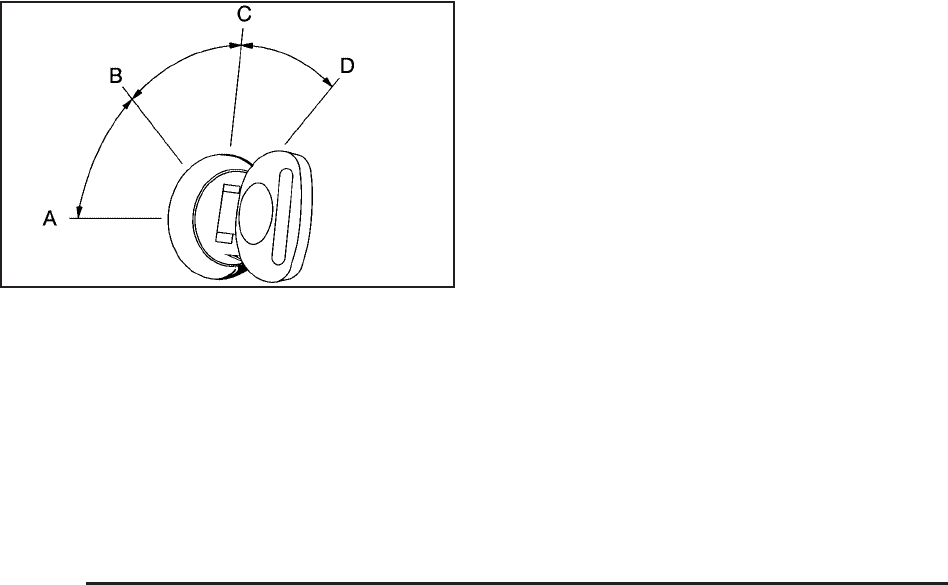
Ignition Positions (Key Access)
The key can be turned to four different positions.
To shift out of P (Park), the ignition must be in the
ON/RUN or ACC/ACCESSORY and the brake pedal
must be applied.
Notice: Using a tool to force the key from its
cylinder could cause damage or break the key.
Use the correct key and turn the key only with your
hand. Make sure the key is all the way in. If it is
and you have a manual transmission vehicle, turn
the steering wheel left and right while you turn
the key hard. If none of this works, then the vehicle
needs service.
A (LOCK/OFF): This is the only position in which the
key can be inserted or removed. This position locks the
ignition and shifter on automatic transmission vehicles,
and the ignition and steering wheel on manual
transmission vehicles.
B (ACC/ACCESSORY): This position lets you use
things like the radio and the windshield wipers when
the engine is off. This position allows you to turn off the
engine.
C (ON/RUN): This position is for driving. It is the
position the ignition switch returns to after the engine
starts, and the key is released.
To shift the transmission out of P (Park), the ignition key
has to be in ACC/ACCESSORY or ON/RUN.
The battery could be drained if the key is left in the
ACC/ACCESSORY or ON/RUN position with the engine
off. The vehicle might not start if the battery is allowed
to drain for an extended period of time.
D (START): This position starts the engine. When the
engine starts, release the key. The ignition switch
returns to ON/RUN for driving.
A warning tone will sound when the driver door is
opened, the ignition is in ACC/ACCESSORY or
LOCK/OFF and the key is in the ignition.
2-32


















